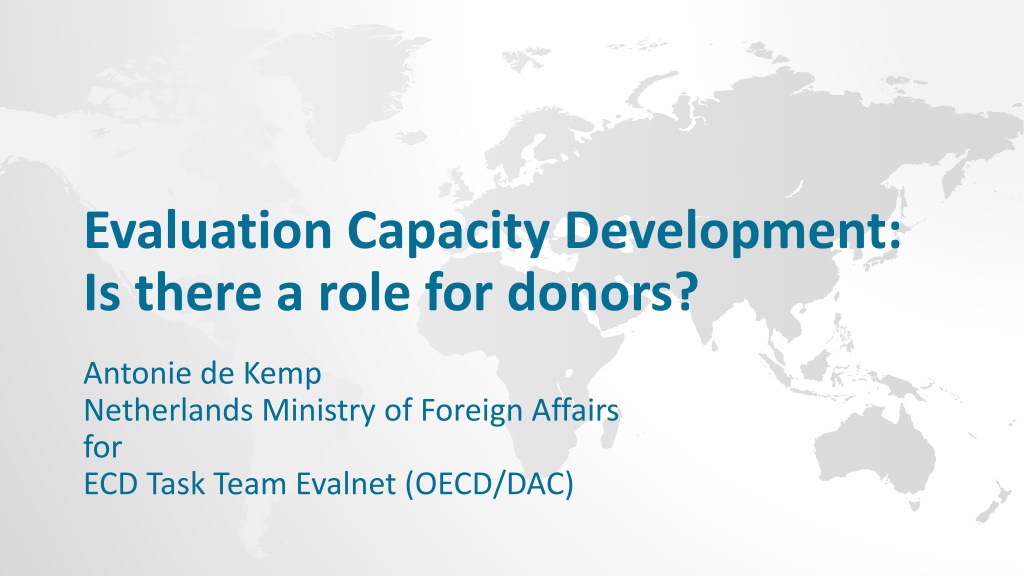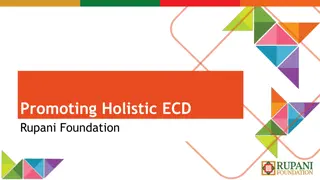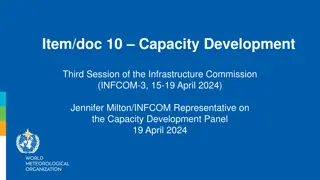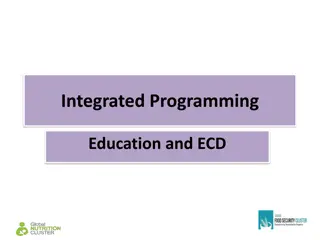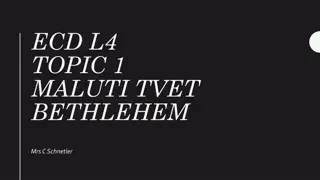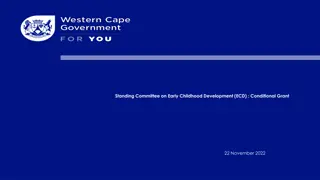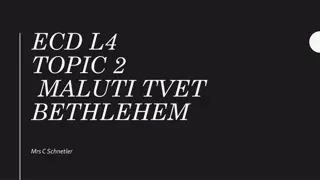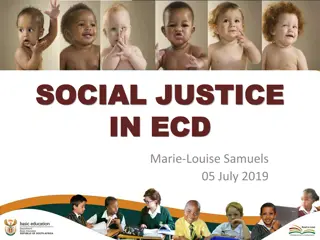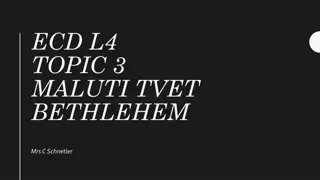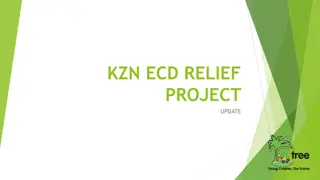Evaluation Capacity Development: Role of Donors in Supporting ECD Initiatives
The presentation discusses the involvement of donors in supporting Evaluation Capacity Development (ECD) initiatives, highlighting areas such as training, conferences, technical assistance, and impact evaluation. It addresses limitations, lessons learned, the importance of networking and partnerships, and provides general suggestions for enhancing ECD efforts.
Uploaded on Oct 07, 2024 | 0 Views
Download Presentation

Please find below an Image/Link to download the presentation.
The content on the website is provided AS IS for your information and personal use only. It may not be sold, licensed, or shared on other websites without obtaining consent from the author. Download presentation by click this link. If you encounter any issues during the download, it is possible that the publisher has removed the file from their server.
E N D
Presentation Transcript
Evaluation Capacity Development: Is there a role for donors? Antonie de Kemp Netherlands Ministry of Foreign Affairs for ECD Task Team Evalnet (OECD/DAC)
Contents: o What have we done? o Limitations o Lessons o Context o What can we do? o Discussion
Donors supported ECD through: o Training: IPDET, CLEAR o Conferences and workshops: AfrEA, NEC o Technical assistance for M&E systems: CLEAR, WB, AfDB, UNDP, GAVI, DFID, Germany o Impact evaluation: 3IE o Joint evaluations (Paris Declaration, budget support) o Collaborative evaluations
Networking / Partnerships / Enabling environment o VOPE s o IDEAS o IOCE o Evalpartners (2012) o Global Parlementarians Forum for Evaluation o African Parlementarians Network on Development Evaluation (AfDB)
Limitations: o Funding: limited resources of evaluations departments o Mandate o Accountability: the need to show results o ECD in northern countries (we are also learning)
Lessons:* 1. ECB is a catalytic investment 2. Institutional development depends on demand and political will 3. Ownership is crucial 4. Short-term training initiatives are not effective unless combined with on the job training 5. Parachuting international consultants does not enhance ECD 6. Engaging with the executive and legislative powers is critical 7. Blended targeting is key * 4-7: Michele Tarsilla, AfrEA (2014); African Evaluation Journal (2014)
Context: o Changing role of donors / ODA o Shift from programme aid to project support o Growth of national and regional evaluation networks o Shift of ECB from training and joint evaluations towards system building / enabling environments o Risks of confusing monitoring with evaluation o Training of young and emerging evaluators
General suggestions: o Identification of strategies for embedding ECD in country programmes and evaluation policies o Develop ECD Guidelines o Development of an advocacy strategy o Coordination of ECD initiatives (avoid evaluation orphans) o Share information (what works) o Widen engagement with local consultants, evaluation associations, young professional evaluator networks
Practical suggestions: o Establish a common fund o Stimulate twinning institutions o Enhance ownership by involving southern stakeholders much more in the evaluation process (including ToR) o Insist on engaging local consultants in the whole evaluation process o Insist on including young practioners in the evaluation team as part of on the job training
But what is really important: o Listen to the demand side
Discussion: Is there a role for donors?
